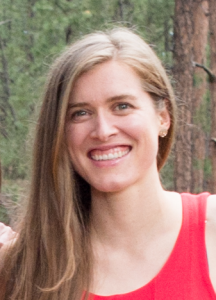MA, 2017
Sometimes we have to go back to basics and remind ourselves to be humble practitioners. That’s one of the big take-aways that Caitlin Matthews carries from her experience as a dual-degree student at UEP.
Matthews graduated in May 2017 with a Master of Arts from UEP and Master of Science in Agriculture, Food, and Environment from the Friedman School of Nutrition Science and Policy. Dual-degree students can complete both two-year degree programs in three years. For Matthews, the distinctions between the two programs were barely distinguishable and the many connections between her disciplines provided a holistic experience. UEP helped round out her Friedman curriculum with more explicit focus on social justice and community practice, Matthews said. She also noted that UEP’s client-based projects help students apply what they learn in the classroom. “UEP equips us, in a lot of ways, to hit the ground running.”
Matthews, a Colorado native and former public school teacher in Portland, Oregon, said UEP addresses social justice and where it connects with practice. UEP’s required Field Projects course is one example of how the program tries to integrate practice in the academic experience, Matthews said, but some professors also include client-based projects in their classes. Matthews was also able to base her thesis regarding food security and regional self-reliance in the Department of La Paz, Bolivia, on work with a Bolivian non-profit organization.
Continuing in her interdisciplinarity, Matthews hopes in the short term to return to her native Colorado to work at the nexus of environment and agriculture, especially focused on agricultural production and water resources. In the long term, Matthews is considering continuing her academic career, but is debating whether to maintain an interdisciplinary focus or commit herself more fully to a specific disciplinary lens.
“We’re obviously at a point where we’re contemplating really big questions about what we think is fair for people and the earth. I’m not sure we have clear leadership in that vision,” Matthews said. “Sustainability must be equitable and equity must be sustainable.” At both UEP and Friedman, Matthews received a rich experience and valuable lessons from instructors and peers at both programs. “It’s important not to leave thinking you have all the answers,” she said.
